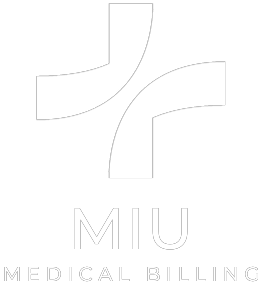Introduction
As the healthcare sector evolved, a critical strategic element in many modern healthcare organizations’ success is revenue cycle management (RCM). The strategy of outsourcing revenue cycle management has become a real magic, which has a set of advantages that can affect the financial and organizational growth of a healthcare provider. Hiring the services of professional and efficient third-party RCM service providers can help enhance the revenue cycle of healthcare institutions while being competent in providing quality services to patients.
Improved Financial Performance with Outsourced Revenue Cycle Management

The benefits of outsourcing revenue cycle management affect the healthcare organization in various ways, especially regarding its financial results. They understand the growth potential in RCM and have more skill in achieving high revenue claims, fewer denials, and several tricks within the bucket that can help them gain more cash. Because outsourced revenue cycle management providers have detailed specific payer policies and coding specifications, outsourced RCM could help patient care providers professionally increase their collected dollars and days in accounts receivable balances. This financial optimization can generate improved margins and create the financial headroom for reinvestment in patient care and service enhancements.
Enhanced Operational Efficiency through Outsourced Revenue Cycle Management
The benefits of outsourcing the revenue cycle management increase the overall efficiency of operations. RCM service providers possess specialized knowledge, integrated technology, and reliable business processes to manage many areas of the revenue cycle, such as claims submission, follow-up, and denial management. By outsourcing these cumbersome and complicated tasks, healthcare organizations can centralize their valuable resources in the major areas that relate directly to patient service delivery. Such enhanced focus on the organization’s strengths would herald gains in efficiency, minimized overheads, and generally enhanced organization-wide effectiveness.
Ensuring Regulatory Compliance and Coding Expertise with Outsourced Revenue Cycle Management
The regulatory environment constantly changes, and coding and medical compliance issues remain significant for the healthcare industry. To this end, outsourced revenue cycle management service providers need to be extremely well-versed in these areas not to expose the healthcare organizations that avail their services to costly penalties. Such specialty vendors know current regulatory rules, coding, and payer rules and regulations that help the healthcare systems receive payments without denials or audits.
Reduced Operational Costs through Outsourced Revenue Cycle Management
Outsourcing revenue cycle management also brings about greater cost savings for healthcare institutions. Due to the scale of their operations, embracing sophisticated technologies and efficient business models, most RCM service providers end up with higher service delivery efficiency than most in-house teams. Overall, through outsourcing strategy, healthcare organizations will have cut down overhead costs, which hence affect their bottom line, cutting down on human, physical, and financial resources used for skilled people, equipment, and technology, respectively, to maximize their worth by using them to upscale overall service delivery. Cost optimization has positive implications for the organization’s financial position and profitability.
Improved Patient Satisfaction with Outsourced Revenue Cycle Management
Outsourced revenue cycle management also has the potential to improve patient satisfaction. From the above-discussed ways, RCM service providers can align billing and payment processes with patients and make them transparent. It’s always important to note that the patients expect clear communication, accurate statements, and timely handling of any billing concern. This positively impacted the patient experience, which may translate to increased patient satisfaction, good health outcomes, patient advocacy, patient retention, and patient referrals to the healthcare organization – all of which are crucial to the sustainable success of any healthcare organization.
Access to Advanced Technology and Reporting through Outsourced Revenue Cycle Management
The outsourced revenue cycle management service providers often dedicate significant resources to new technologies and detailed reports. This is why these advanced tools and analytics can help healthcare organizations gain insight, evaluate, and improve their revenue cycle performance. Healthcare organizations can get an advantage from the technological features of RCM service providers and improve their decision-making to achieve better results in revenue cycle management and constant improvement.
Scalability and Flexibility with Outsourced Revenue Cycle Management
Due to the expected variability in the number of patients, services, and regulatory enhancements on the side of HCAs, the ability to address solutions of different sizes can be vital for the planning of RCMA. Among the potential advantages of outsourcing revenue cycle management is the ability of the partners to scale and evolve in keeping with these needs. RCM service providers can increase or decrease their level of service to meet the organization’s needs at any given time, thus enabling healthcare providers to sustain maximum RCM performance without coordinating and scaling an internal resource.
Conclusion: Embracing the Benefits of Outsourcing Revenue Cycle Management

In the multi-faceted and constantly evolving environment of the modern healthcare industry, outsourcing revenue cycle management has evolved as a competent and effective execution model that, when properly implemented, can provide various advantages to participants in the healthcare market. Outsourcing RCM to professional and first-rate service providers opens the way for reimbursement and healthcare providers to achieve higher financial returns, increase organizational efficiency, meet compliance requirements, and save costs significantly. Furthermore, outsourcing revenue cycle management can improve patient’ satisfaction and grant access to superior reporting features that will benefit the organization. As healthcare organizations persist with issues of market entrants, achieving high revenues and offering quality services utilizing the benefits of outsourced revenue cycle management could be a vital move.




